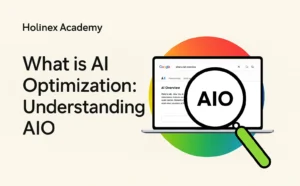Ever wonder how you can leverage the power of digital marketing to grow your business in a halal way? You’re not alone. Many Muslim business owners and marketers grapple with how to implement effective digital marketing campaigns that align with Islamic principles. The good news is, it is possible. Halal digital marketing is an emerging field that allows you to build an online presence, increase brand awareness, drive traffic, and boost sales in a manner consistent with sharia law. In this article, we’ll explore the concept of halal digital marketing and how you can implement strategies across platforms like social media, search engines, email, and your website that respect your faith and values. Get ready to learn how to spread your message and grow your business the halal way.
What Is Halal Digital Marketing?
So what exactly is halal digital marketing? In short, it refers to digital marketing strategies and tactics that align with Islamic principles. This means avoiding anything haram (forbidden) and focusing on what is halal (permissible).

For example:
- No interest-based ads or promotions. Charging or paying interest (riba) is forbidden.
- No ads for alcohol, gambling, or other haram products. Promoting anything forbidden in Islam would go against halal digital marketing.
- No deceptive ads or “clickbait”. Honesty and transparency are important Islamic values.
- Focus on useful and beneficial content. Provide value to your audience and community.
- Build genuine relationships and trust. Deceiveing or taking advantage of customers would be unethical.
- Respect privacy and obtain proper consent. Disclosing people’s information or tracking them without permission violates their trust and rights.
- Promote positive values and social good. Use your platform to spread knowledge, empower others, and make a positive impact.
In today’s digital world, it’s important for Muslim businesses and organizations to uphold Islamic principles in their marketing and communications. Halal digital marketing aims to do exactly that by taking an ethical, value-driven approach to strategy and execution. When done right, it can be an impactful way to connect with Muslim audiences in a meaningful, trustworthy way.
Core Principles of Halal Marketing
To market to Muslim audiences in an ethical way, you need to understand some core principles of halal marketing.
First, transparency and honesty are key. Don’t try to mislead your customers or hide details in the fine print. Be upfront about what you’re offering and who you are as a company. Build trust through authenticity and sincerity.
Second, avoid promoting anything haram (forbidden). This includes alcohol, pork, gambling, and interest-based banking. Promote halal products and services that are permissible under Islamic law.
Third, respect cultural values. Understand the importance of faith, family, and community. Reflect these values in your messaging and campaigns. For example, show how your product or service brings people together or helps them strengthen their faith.
Fourth, seek advice from Muslim scholars and community leaders. Work with experts who can review your marketing strategies and campaigns to ensure they align with Islamic principles. Be willing to make changes based on their feedback.
Fifth, support worthy causes. Giving back to the community is an important part of Islamic values. Donate a portion of proceeds or volunteer your time with local Muslim charities and organizations. Let your customers know about these efforts.
By following these principles, you can build trust and loyalty with Muslim audiences in an ethical, culturally-sensitive way. Your halal digital marketing strategy will be much more effective when you show a genuine understanding of and respect for Islamic values.

Digital Marketing Channels That Can Be Optimized for Halal Audiences
Social Media
Social media platforms like Facebook, Instagram, and YouTube offer major opportunities for halal digital marketing. These channels allow you to build an engaged audience, share updates, promote products and services, and foster community. To optimize for halal audiences:
- Focus on visual content like photos and short videos that showcase your products or services. This allows people to see what you offer without promoting anything haram.
- Build an active social media community by posting regularly, responding to comments and messages, and engaging with your followers. Show that you value them and are invested in the relationship.
- Promote halal-certified products and services, especially around holidays and events. But don’t overly focus on sales and deals which can seem insincere.
- Share knowledge and advice that provides value to your audience. For example, post recipes, style guides, travel tips, or wellness advice that fits within Islamic principles.
- Use hashtags to increase visibility and connect with more halal consumers. Some options include #halal, #halalfood, #modestfashion, #halallifestyle.
Email Marketing
Email newsletters are a great way to stay in touch with your audience, build loyalty, and promote new offers or content. To make your emails halal-friendly:
- Keep a casual, friendly tone as if speaking with a friend. Be transparent and avoid overly salesy language.
- Share a mix of content including product updates, blog posts, recipes, lifestyle tips, and community news. Don’t just push sales and deals.
- Provide value by educating your audience on halal topics they care about. For example, explain halal certification, introduce Islamic holidays, highlight travel destinations, etc.
- Include stunning visuals that bring your content to life and give people a sense of your brand’s personality and style. But avoid anything that could be seen as inappropriate or promote haram products.
- Offer special subscriber-only deals and discounts to show you appreciate your loyal readers. But focus more on building relationships rather than driving sales.
- Make it easy for people to unsubscribe and be transparent about how you use their information. Respect people’s privacy and consent to build trust.
Developing a Halal Digital Marketing Strategy
Developing a halal digital marketing strategy requires balancing Islamic principles with effective marketing techniques. The key is to be authentic and provide value to your audience.
Focus on building trust
The foundation of any halal digital marketing strategy should be building trust and transparency with your audience. Be open about your business practices and how you operate within Islamic guidelines. Share the stories behind your brand and products to help people connect with your mission.
Provide useful content
Create content that educates and benefits your audience. For example, write blog posts explaining halal concepts or share recipes for halal meals. You can also start an email newsletter with tips for halal living. This content should aim to be genuinely helpful, not just a sales pitch for your products or services.
Use social media thoughtfully
Social media is a powerful way to spread your message, but it also risks distracting people or promoting unrealistic lifestyles. Post authentic content that brings positivity and value. Share real photos of your products and team. Respond to comments and questions promptly and politely. Build real connections with your followers.
Optimize for search
Many Muslims search online to find halal-certified and Shariah-compliant businesses. Optimize your website and content for search terms like “halal,” “Shariah-compliant,” and “Muslim-friendly.” This will make you easier to find for people specifically looking for halal products and services.
Advertise ethically
Follow Islamic principles for any advertising and marketing campaigns. Ads should be honest, ethical, and avoid anything forbidden like interest-based promotions. Work with Muslim influencers and media organizations to spread your message in an authentic way. Sponsor local community events to raise brand awareness.
By focusing on trust, value, and community, you can develop a halal digital marketing strategy that aligns with Islamic values and still helps your business thrive. The key is maintaining sincerity in all of your efforts.
Case Study: How Companies Are Using Halal Digital Marketing
Some companies have found innovative ways to apply halal digital marketing strategies. Let’s look at a few case studies:
Emirates Airlines
Emirates Airlines, based in Dubai, promotes halal tourism and halal dining options. Their website and social media highlight halal meal options, prayer facilities, and other amenities for Muslim customers. They also promote destinations popular for halal tourism like Malaysia, Turkey, and Morocco.
Nestle
Nestle, the largest food and beverage company in the world, acquired a halal certification for many of their products to appeal to Muslim consumers. They promote these halal products on their website and social media, especially around Ramadan and Eid. Nestle also sponsors many halal food festivals and events.
Unilever
Unilever, another major consumer goods company, has a dedicated website for their halal products that provides information on halal certification and ingredients. They actively promote these halal offerings on social media to build brand awareness and loyalty among Muslim customers. Unilever also works with influencers and bloggers to spread awareness of their halal products.
- Use of social media to engage Muslim audiences
- Promoting halal tourism destinations and amenities
- Obtaining halal certification for products and services
- Sponsoring halal-related events and influencers
- Dedicated halal product websites
These companies recognize the importance of the halal economy and are using digital marketing to build trust and gain the loyalty of Muslim consumers around the world. By understanding the values and needs of their target audience, they are able to effectively apply halal digital marketing strategies. Other companies would do well to follow their lead.
Conclusion
So there you have it, a quick overview of how digital marketing strategies can be adapted to align with Islamic principles. As a Muslim entrepreneur or business, you now have some practical tips and insights to help ensure your online marketing efforts adhere to halal standards. It may require some extra work on the front end to adjust messaging or choose platforms that meet certain criteria, but maintaining your values and ethics is worth it. Your customers and community will appreciate your authenticity. And who knows halal digital marketing may even become an industry in and of itself as more Muslims look to build an online presence in a way that makes them feel fully comfortable. The possibilities are exciting!


































